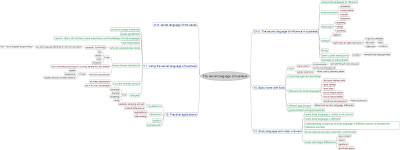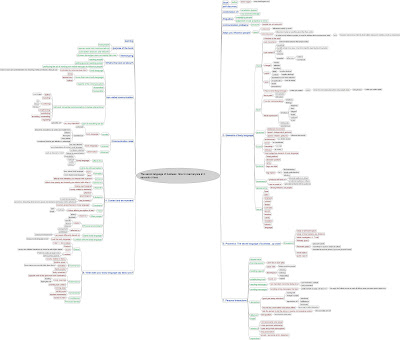Ever since I got my lovely Amazon Kindle, I have been reading my way to glory:) Some of the books I read and recommend are :
97 Things Every Project Manager Should Know: Collective Wisdom from the Experts by Davis Barbee (Author) - Excellent collection of project management wisdom from several veteran project managers.
The Bhagavad Gita (Classics of Indian Spirituality) by Eknath Easwaran - Simple yet most notable translation of great ancient epic by my spiritual teacher Sri EE. For extensive commentary, please consider reading the three volume set (Bhagvadgita for Daily Living) by Sri Easwaran.
The Blood of Lambs: A Former Terrorist's Memoir of Death and Redemption by Kamal Saleem and Lynn Vincent - Heart touching memoir of a former Palestinian militant. Now the author (i.e. former militant) is a reformed man who is on the lecture circuit to talk about and against radical Islam. Great read for all middle eastern political junkies (like me).
The Essential Swami Ramdas by Swami Ramdas and Rebecca Manring - Collection of essays of Swami Ramdas. Great spiritual wisdom from a great guru who founded Anandashram near Mangalore.
It Takes a Genome: How a Clash Between Our Genes and Modern Life Is Making Us Sick by Greg Gibson - Nice book on latest discoveries in the field of genome and related research. Written in a way so that common people can understand the complex stuff.. Good book.
High On Arrival by Mackenzie Phillips - Pretty disturbing and unsettling autobiography from Mackenzie Phillips, a Hollywood star. This book is going to haunt the reader for a long time. Kudos to the author for daring to bare (her life).
Hoodwinked: An Economic Hit Man Reveals Why the World Financial Markets Imploded--and What We Need to Do to Remake Them by John Perkins - Nice book by the author of previously very famous 'Confessions of an Economic Hit man'. Expected much more from Perkins. Feels like the previous book redistilled. But, still Perkins does a good job of explaining how we screwed ourselves and how we are still not learning from our mistakes which lead to current economic mess.
How to Know God: The Yoga Aphorisms of Patanjali by Swami Prabhavananda, Christopher Isherwood, and Patanjali - This is a true jewel. It really takes great minds to write a book that attempts to interpret the original work of Sage Patanjali. The authors have done a fabulous job. This is a real treat for anyone who wants to understand more about life in general. Sure to answer lot of nagging questions. If you approach this book with an open mind, I bet you will emerge with many good answers and refreshing perspectives. Master piece and classic.
Imagining India: The Idea of a Renewed Nation by Nandan Nilekani - Nice book by one of the founders of Indian IT giant Infosys. Reads well. Author has done a good job of collecting a lot of data and info and traces how India has gotten where it is now and what can be done to take it to the next level. Refreshing read.
JFK And Sam: The Connection Between the Giancana And Kennedy Assassinations by Antoinette Giancana, John R. Hughes, and Thomas H. - Interesting book that looks at mafia angle to JFK assassination. Pretty interesting details about JFK and his links to Chicago mobster Sam Giancana. Strong conspiracy theory emerges when we learn that Sam Giancana himself was bumped off just before he was to appear before the senate committee probing JFK assassination in late '70s. Great read.
Karma and Reincarnation: The Wisdom of Yogananda, Volume 2 (v. 2) by Paramhansa Yogananda - Nice little book on a very complex subject.
Managing with the Power of NLP: Neurolinguistic Programming; A Model for Better Management (2nd Edition) by David Molden - Loaded book. Takes an interesting look at NLP and how it can be used to improve our daily lives. Takes a quite bit of work, time and attention to really get the stuff in this book :)
Marilyn Monroe: Murder - by Consent: A Psychologist's Journey With Death by Jack V. Hattem - Nice book by a psychologist who was part a team that looked at Monroe's death from psychology point of view. Does not get into any of the interesting, lip smacking conspiracy theories. Sticks nicely to pure psychology and attempts to present a balanced view of Monroe's poor state of mind and how that state of mind might have been played out by people who just wanted her to go. It is like giving a gentle push to an already dilapidated wall. It was ready to fall and your push was only a pretext. Probably same thing happened with Marilyn Monroe as well. She has major psycho problems. She was abusing medicines. She was close to self-destruction. Somebody pushed right buttons and she played into that scheme and took a her own life. Nice read although not a fast read.
My FBI: Bringing Down the Mafia, Investigating Bill Clinton, and Fighting the War on Terror by Louis J. Freeh - Nice autobiography by former FBI director.
My Life and Work - An Autobiography of Henry Ford by Henry Ford - Impressive book. Ford was clearly ahead of his times. He writes very candidly about his management philosophy, profit v/s general good, people, global welfare etc. If Ford, as a company, has survived while GM has not, it must be because there are still people at Ford who have an iota of wisdom of its founder. Great book.
On the Trail of the JFK Assassins: A Revealing Look at America's Most Infamous Unsolved Crime by Dick Russell - Another nice book on JFK assassination. Probably the first book to identify who really pulled the trigger on that fatal shot which blew JFK's head off.
The PayPal Wars: Battles With Ebay, the Media, the Mafia, And the Rest of Planet Earth by Eric M. Jackson - A book by an early Paypal veteran chronicling how Paypal got started, how it grew, how it battled with eBay, how the acquisition happened etc.
Raid on the Sun: Inside Israel's Secret Campaign that Denied Saddam the Bomb by Rodger Claire - Excellent thriller of a book on an Israeli operation. It was an audacious operation to say the least. Flying over 1200 miles without refueling, flying over several enemy countries, escaping all those radars, cleanly bombing Saddam's nuclear reactor and returning safely. Once again, dare devil Israelis succeeded. If you want to know how they went about the whole operation, their pains, their creativity, their determination and their commitment, read this book. This is sure to tell you why and how that tiny nation has survived and prospered despite all odds. It also makes a case why it sometimes necessary to be on the offensive rather than defensive all the time. Israelis always take the fight to where terrorists are and don't give them a minute of relief to sit down and plan their next attack against Israel. That's why they have succeeded. Great book on a great operation by a great nation!
The Secret Life of Marilyn Monroe by J. Randy Taraborrelli - Beautiful bio-epic on Marilyn Monroe. Does not get much into conspiracy theories around her death. Simply goes about chronicling her life with a lot interesting facts about her life. For example India finds two references. While Marilyn was being borne her grandmother (mother's mother) was in India. Another reference to India. When President Kennedy and Monroe spent time together for the first time, first lady Jackie Kennedy was in India and called JFK when JFK and Monroe were together in a cottage in Palm Springs, CA. Many such interesting trivia makes this large book an interesting read.
The Secret Team: The CIA and Its Allies in Control of the United States and the World by L. Fletcher Prouty - Dare to bare it all book. A lot of good info. Boring style. Kindle's text-to-speech is the savior.
See No Evil: The True Story of a Ground Soldier in the CIA's War on Terrorism by Robert Baer - Excellent memoir of a former CIA agent. Baer packs a lot of anguish and frustration about how CIA became way too much focused on technology and in the process ignored human intelligence and how such attitude led to events like 9/11. Good read. A lot references to important events in the middle east in 80's and 90's as the author worked extensively there. A few interesting incidents in India too as Baer worked in India also and recruited agents who nicely gave him the stuff he wanted - stealing from Indian secret files.
Six Minutes to Freedom by Kurt Muse and John Gilstrap - one of the best books on a high voltage hostage rescue mission in Panama by US special forces. Author Kurt Muse was an American living in Panama. He was active in organizing an uprising against dictator Noriga. He got jailed. US had to rescue him carefully while they mounted the operation to remove Noriega. This book beautifully chronicles author's life in Panama, his family's courage and bravery while he was arrested and jailed, how his, then, teenage daughter escaped from the clutches of Norigea henchmen to inform her mother in the US, how the family ran from pillar to post and all power centers in Washington to get Muse rescued and how the final operation unfolded. It was a dare devil operation. The helicopter which was supposed to carry Kurt Muse and Delta forces got badly hit while taking off after the Delta forces had neutralized jail guards and rescued their hostage. So, the copter could not fly. They drove it to safety on the streets of Panama City. It may seem funny to imagine a helicopter being driven like a car on the streets. But, read the book and you will become an occupant in the helicopter with bullets going right above your head. That's how the authors have dramatized it. Great read!
Spiritual Relationships: The Wisdom of Yogananda, Volume 3 by Paramhansa Yogananda - Beautiful little book by the master. Focused on relationships. Relationships are a necessary pain. You can not escape them and the pain they inflict on every human being. Of course, there is supposed to be joy underneath all the pain that relationships bring. This book and guru Yogananda's timeless wisdom may help understand the real stuff so that we can try to see relationships for what they are and how to make most out of the relationships which are mostly preordained.
Third Class in Indian Railways by Mahatma Gandhi - Collection of essays by Mahatma Gandhi on variety of subjects. First essay is about his experiences in Indian railways. Rest of the essays are about Swadeshi, Champaran movement etc. Makes an interesting read. Kindle edition is available for free on AMZN.
Trail of the Octopus by Lester K. Coleman and Donald Goddard - One of the many books that came out after Pan Am 103 flight was destroyed by a bomb in mid air in 1988. As usual, there are many conspiracy theories. Ultimately blame was tied to Libya and Gadaffi. Author, Coleman, was a clandestine agent working in the middle east during that time. This book is his take on the series of events that lead to the bombing of flight 103 and how what he wanted reveal became something powerful people could not swallow. After that, those powerful forces went after Coleman and he ran away from USA and is still living somewhere in Europe to escape charges pending against him in the USA. Decent book for conspiracy aficionados.
Wings of Fire: An Autobiography of APJ Abdul Kalam by Arun Tiwari - Biography of former Indian President Abdul Kalaam. Very nicely traces his life as a scientist, technocrat and finally a president. Nice read. Free PDF versions floating on the net.
Powered by Qumana








